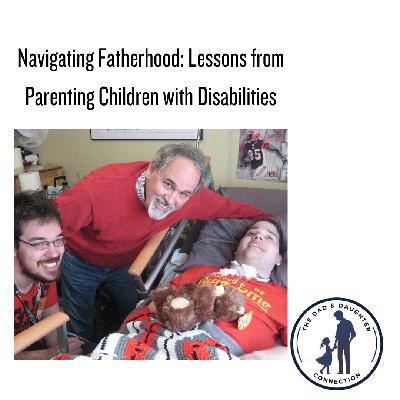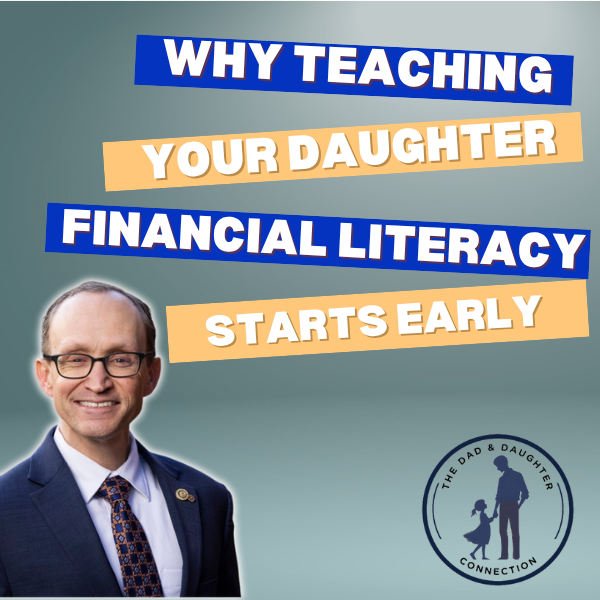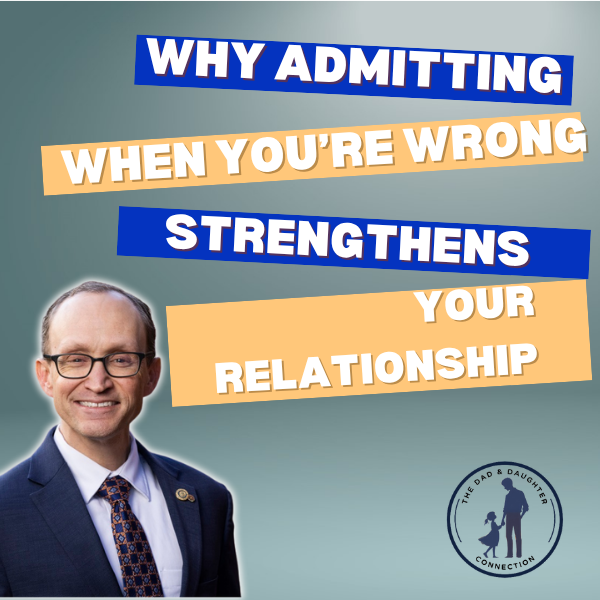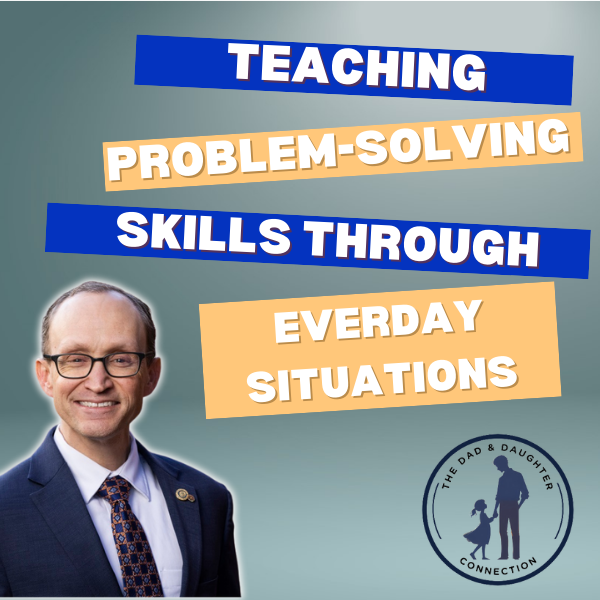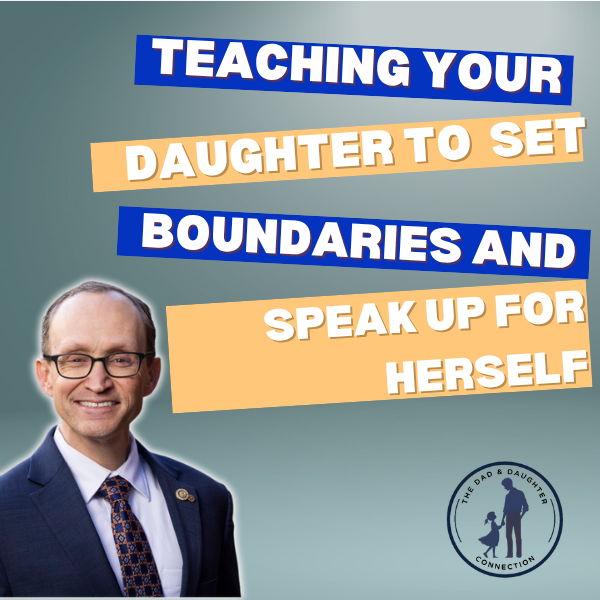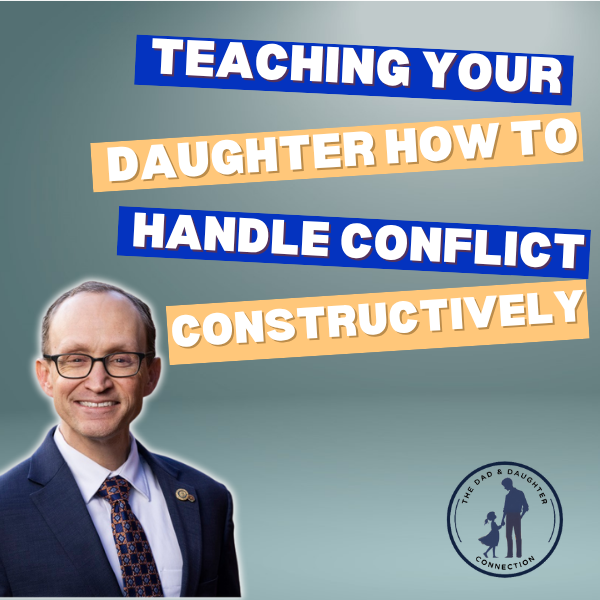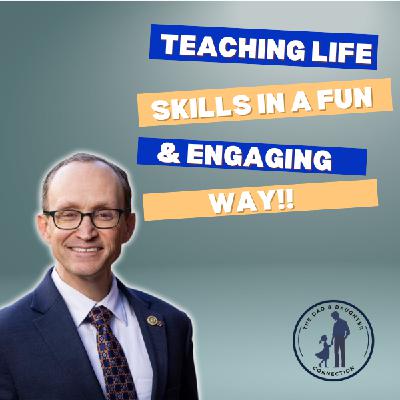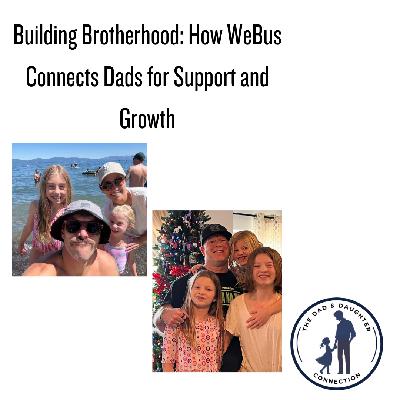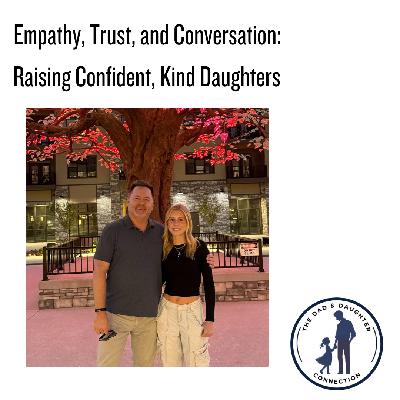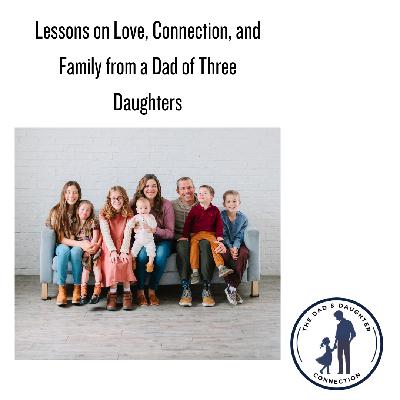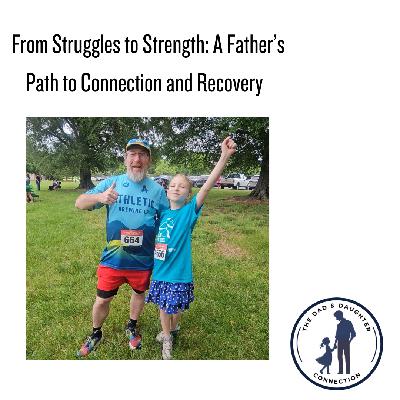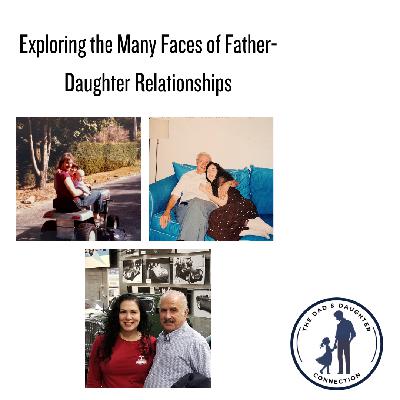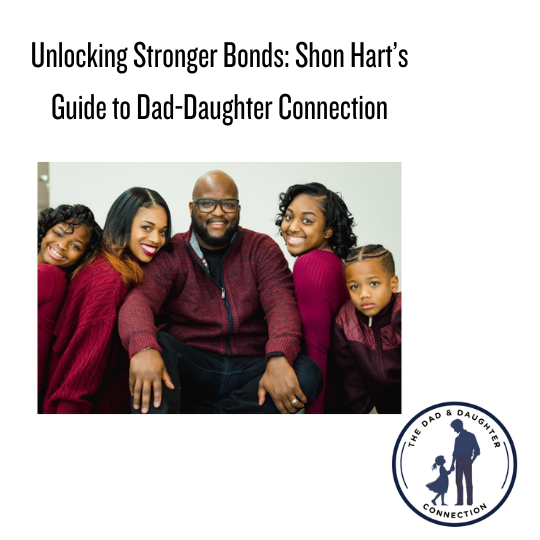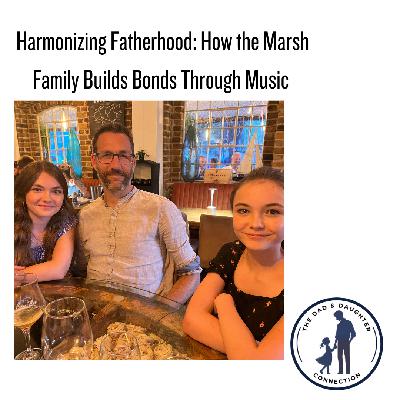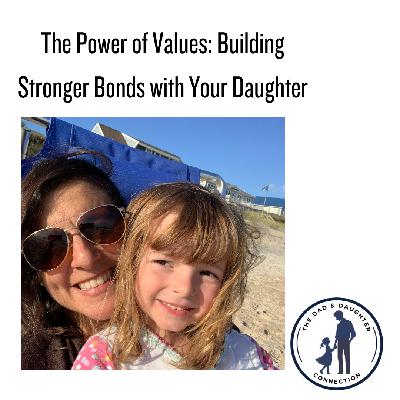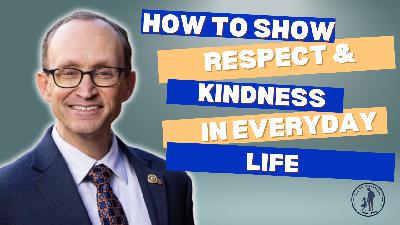Navigating Fatherhood: Lessons from Parenting Children with Disabilities
Description
Fatherhood is a journey filled with highs, lows, and countless unexpected turns—something this week's episode of the Dad and Daughter Connection beautifully illustrates. Host Dr. Christopher Lewis welcomes Steve Harris, author of Dads Like Us: A Survival Guide for Fathers Raising a Child with Disabilities, to share his personal story, hard-won wisdom, and practical advice for fathers facing one of life's greatest challenges: raising a child with special needs.
From the very beginning, it's clear this conversation isn't just for dads of daughters or even just for dads of children with disabilities—it's for anyone committed to being present, adaptable, and truly connected as a parent. Steve's authenticity shines as he reflects on meaningful moments with his sons, the heartbreak and resilience of navigating medical crises, and the importance of simply "being there."
One of the standout themes throughout the episode is the need for self-care as a caregiver. Steve reminds us that fathers, especially those facing long-term challenges, must take care of their own mental, emotional, and physical well-being. "The stronger we are as dads, the better dads we're going to be," he shares—a lesson learned through years spent in hospital rooms and therapy sessions.
The episode also tackles often unspoken emotions: grief for the future you envisioned, anger at situations you can't fix, and loneliness when you feel pushed to the sidelines. Steve offers compassionate advice: acknowledge your feelings, reach out for help, and remember you are not alone. He encourages dads to stay involved, advocate for their children, and celebrate the unique gifts and victories—big or small—that each day brings.
Perhaps most poignant is Steve's advice for those just starting this journey. In the first bewildering days after a diagnosis, he urges fathers to resist the urge to isolate, reach out to loved ones, and move through grief towards gratitude for the child in front of them.
For anyone on the path of parenthood—especially those facing extra challenges—this episode is a supportive, practical, and inspiring listen. Don't miss it. Tune in to hear how showing up, adapting, and loving unconditionally shapes both father and child.
Listen to the full episode of the Dad and Daughter Connection wherever you get your podcasts, and discover more stories and resources at dadanddaughterconnection.com.
TRANSCRIPT
Dr. Christopher Lewis [00:00:02 ]:
Welcome to the dad and Daughter Connection, the podcast for dads who want to build stronger bonds and raise confident, independent daughters.
Dr. Christopher Lewis [00:00:12 ]:
If you're looking to build a stronger bond with your daughter and help her grow into a confident, independent woman, you're in the right place. I'm Dr. Christopher Lewis, and the dad and Daughter Connection is the podcast where we dive into real stories, expert advice, and practical tips to help you navigate the incredible journey of fatherhood. In every episode, we'll bring you conversations that inspire, challenge, and equip you to show up as the dad your daughter needs. So let's get started, because being a great dad isn't just about being there. It's about truly connecting. Welcome back to the dad and Daughter Connection, where every week we have a great opportunity to be able to learn, to grow, to be able to become those fathers that we want to become for our children. And every week, we do that with an opportunity to be able to meet other dads, dads with different experiences that can share some of the things that they have learned to help you in the journey that you're on.
Dr. Christopher Lewis [00:01:16 ]:
And it is a journey because every day is going to be a little bit different. Every day we have to work, work to build those relationships with our children. And it is important to be open to the idea and the thought that you have to put in the work. You've got to put in the work. You got to be willing to learn, to grow, to be able to be that dad that you want to be. And that's why every week I come back and I know that you come back to be able to learn from other fathers. And today we got another great guest. Steve Harris is with us.
Dr. Christopher Lewis [00:01:49 ]:
And Steve is a father of two sons. And we're going to be talking about the journey that he went on and a book that he wrote called Dads Like Us, A Survival Guide for Fathers Raising a Child With Disabilities. And we're going to talk about his own journey. As I said, he had two sons. One of his sons has passed. And we're going to talk about that journey with his own sons, as well as the book and some things that you might want to think about, especially if you're raising a child with a disability. And I'm really looking forward to having him here today. Steve, thanks so much for being here.
Steve Harris [00:02:23 ]:
Well, thank you, Chris. It's honor to be talking with you today.
Dr. Christopher Lewis [00:02:26 ]:
Now, one of the things that I love doing at the very beginning is talking about you as a dad. And many times I talk to dads with daughters. You have sons. But many of the questions that I ask are very much related to just being a father. So I'm going to ask you some similar questions that I ask to dads with daughters, and we'll go down that pathway. So as you think back to the time that you had with both of your sons, what's one meaningful moment that you shared with them and what made it so special?
Steve Harris [00:02:55 ]:
Wow, there have been so many. I have two sons, Andrew, who's now 37, and Matthew, who passed away, almost made it to his 40th birthday. So we had a long journey. And I can think of a moment with Matthew especially, I mean, comes to mind. First, sixth grade graduation. He had been able to be in school with a lot of special help and support from the teachers and paras there. They had a graduation ceremony. For some reason, Matthew was kind of verbal, not hugely verbal, but he could say things in moments that had a lot of meaning.
Steve Harris [00:03:24 ]:
They invited him to come up to the podium and address his rather large crowd. I was kind of nervous watching that all taking place, but Matthew wheeled up to the microphone, had a big smile on his face, and just said thank you. And for me, that was an amazing moment. It was very simple. Maybe to others it would not seem like a big deal, but the fact that he had made it in his life through all kinds of physical challenges and that he would sit there in his wheelchair and say thank you and be grateful. Wonderful person. Meant a ton to me that he did that. Andrew played a lot of, we call them handicapped sports, but adapted sports in high school, became the co captain of his adaptive soccer team.
Steve Harris [00:04:02 ]:
He was able to show some leadership and be a leader in a situation that was difficult. And I'm hugely proud of my boys. I'll say that I've got a million moments like that, but those were two.
Dr. Christopher Lewis [00:04:14 ]:
As your sons got older and you continued to help to guide them in the journey that they were on and becoming the adults that they became. How did you balance guiding your sons while also giving them the independence that they needed to be able to grow into their own person?
Steve Harris [00:04:34 ]:
Well, the situation that they faced, they both had inherited a pretty, very rare genetic condition called Polysius Mersbacher disease. We didn't know that right at first, but. And Matthew was also born with spina bifida. They had so many physical challenges and long hospital stays, and they've had a lifetime of tough stuff. I have tried to appreciate them as individual people, that they are unique persons, you know, made in the image of God, with a potential for their lives and trying to find out in lots of different ways what that potential could be, I guess. Chris, I've just tried to love them. I've tried to be there for them. I've tried to, through ups and downs, tried to show them that they are totally valuable, priceless people, as valuable as anybody else who walks the face of the earth.
Steve Harris [00:05:22 ]:
That they're very special. And I can't think of one exact strategy I had other than to hopefully be their loving dad.
Dr. Christopher Lewis [00:05:28 ]:
What are some intentional ways that you worked with your sons to strengthen that bond with them, especially during challenging times?
Steve Harris [00:05:35 ]:
Well, I guess number one would be being there. That sounds kind of simple, but the sad truth is that I talk about it in the book and stuff and other places that dads of kids who are disabled, they have a unique journey. It's a tough journey. It means that we are. I don't know if you agree with this, Chris, but I think dads are kind of wired to be the fixers and the protectors of our kids, definitely. So when we get into the life that we live as the dads of children with disabilities, most of the time we can't be that. We can't be the fixer, we can't be the protector. And that can be frustrating.
Steve Harris [00:06:07 ]:
It creates all kind of different conflicts and emotions for us. But I've tried to be there for them. Again. A sad statistic is that many dads don't stay involved in the lives of their kids when they are disabled, th

